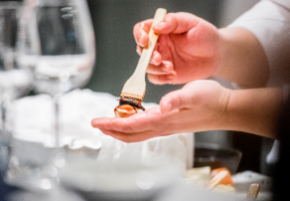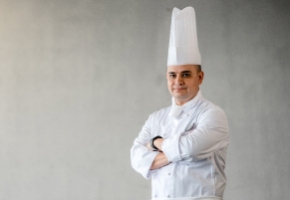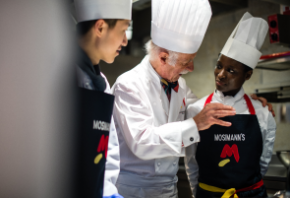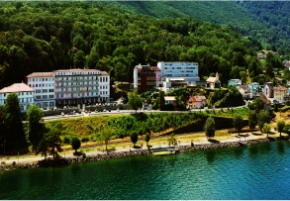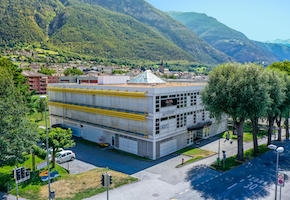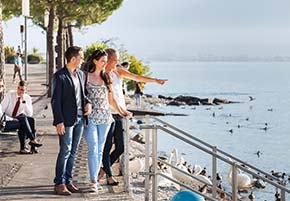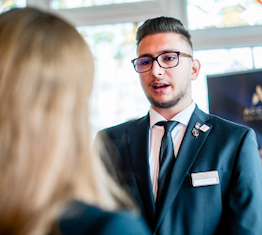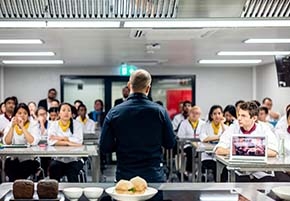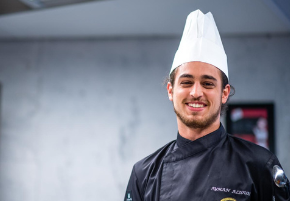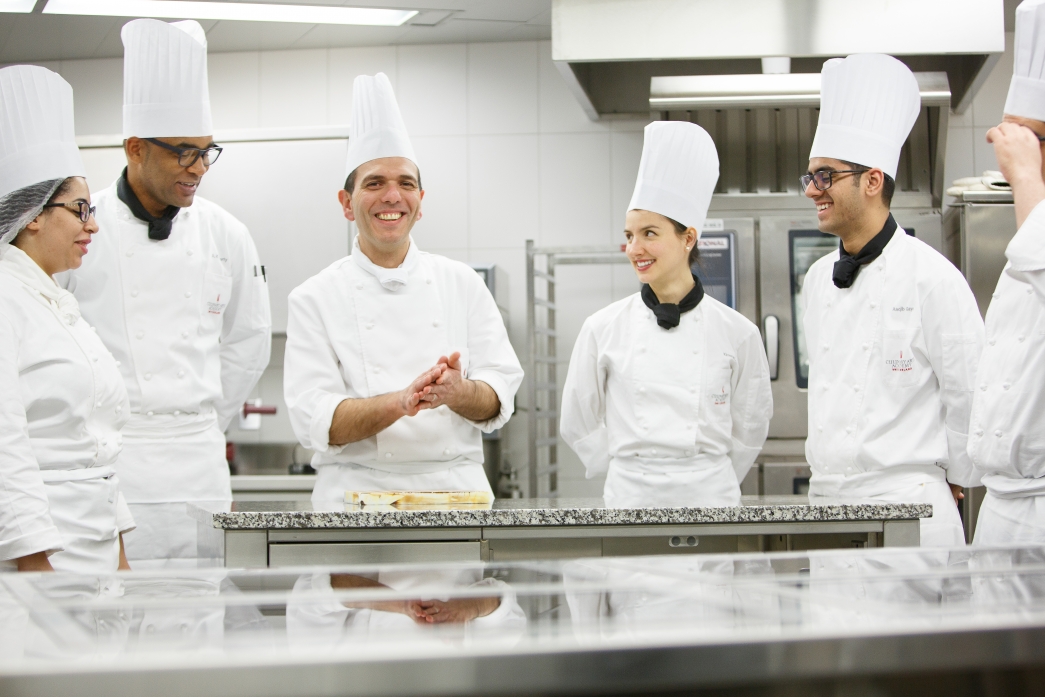- About
- Programs
- Campus Life
- Career Services
- Admissions
- News & Events
- Alumni
Meet the Faculty: Chef Fotios Kefalakis
Bringing generations of culinary excellence to our kitchens
For Chef Fotios Kefalakis, Program Leader at our Lucerne campus, it is impossible to imagine a career outside of the kitchen. The experienced pastry chef’s love of culinary arts is in his genes – his father was a chef and his grandfather owned eight pastry shops in his home country, Greece.
For the past 25 years, Chef Fotios has been continuing this family tradition, working in 5-star hotels, fine-dining restaurants, and 7-star cruise ships around the world. He tells us more about his passion for pastry and opportunities for new graduates as they begin their culinary careers.
Where did your love of pastry begin?
My father was a chef, and my grandfather owned eight pastry shops. It really was one of those situations where I don’t know if I loved it because I grew up with it, or if because I grew up with it, I had to learn to love it! But from a very young age, I was always involved in cooking and the pastry side of culinary arts.
When did you decide to start teaching?
That’s a long story… but I suppose if I were to condense it, it was a desire that came about gradually, while I was working on the cruise ships. People are always coming and going in a cruise ship kitchen, so with the continual turnover you end up teaching the same thing to different people – and I was good at it. Teaching requires a lot of patience, I realized, and I came to discover that patience is something I have a lot of!
I had spent years working in Greece, the United Kingdom, Australia, and the United States, in hotels and restaurants and on the cruise ships, but the teaching aspect felt like the natural next step for me.
Where can a career in pastry take you?
The pastry industry is vast, and it differs depending on the establishment you are working in – from cruise ships to hotels and restaurants. You’re always going to find a pastry section in all of these sectors. So you have lots of choice and you’re always having to adapt.
And that’s assuming you’re going to continue working in pastry! What’s amazing about pastry is that it’s all about chemistry, and because of this, it can open doors to whole other careers. This means that if you have a real understanding of food and the science behind it, you’ll find it much easier to work in areas like food development, or big factories where you’re looking at improving food quality – basically other fundamental and drastically different areas in the industry.
Another thing you can do, of course, is teach other professionals.
What was your most valuable experience while working as a pastry chef?
Working on the cruise ships was amazing. I signed a two-year contract and ended up staying for seven. Once you can put that you have worked on a cruise ship on your CV, it’s like a passport or a special forces medal. This is because it really gives you experience in all areas – it’s incredibly hard work, but very rewarding. You’re completely submerged in a multicultural environment, traveling all over the world, and meeting all kinds of people. I started out working on world cruises and then did smaller cruises around the South Pacific.
What is the value of a formal education for a pastry chef?
There is so much value in this kind of education. I know, because my own education in pastry was very different, and there were a lot of things I had to discover on my own through trial and error. I want to create shortcuts for my students while at the same time giving them a deep understanding of the techniques they’re learning.
What do you hope to impart to your students?
I want them to become better than me! In the long term right, that’s what every teacher wants.
Find out more about our pathway in Pastry and Chocolate Arts.
#Faculty


